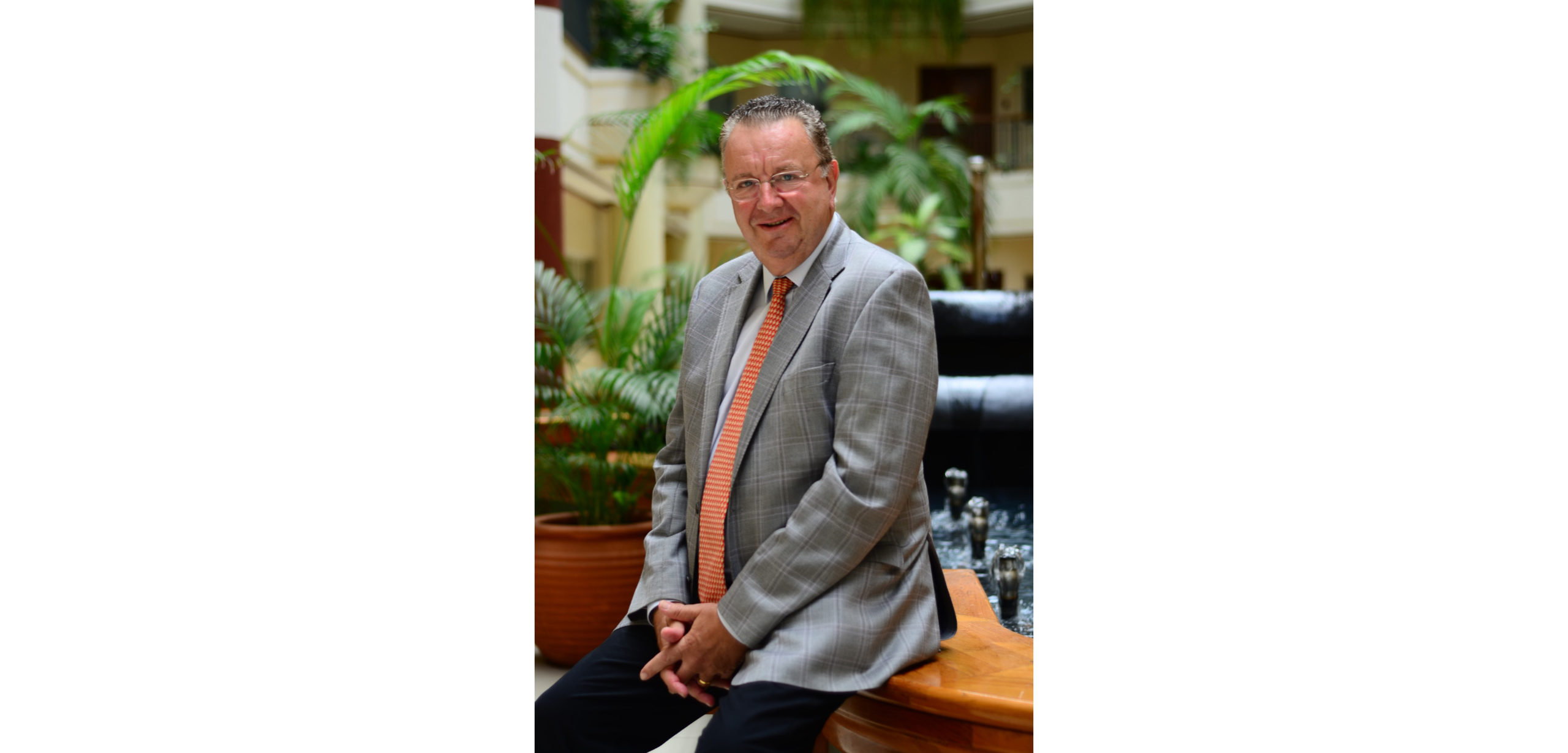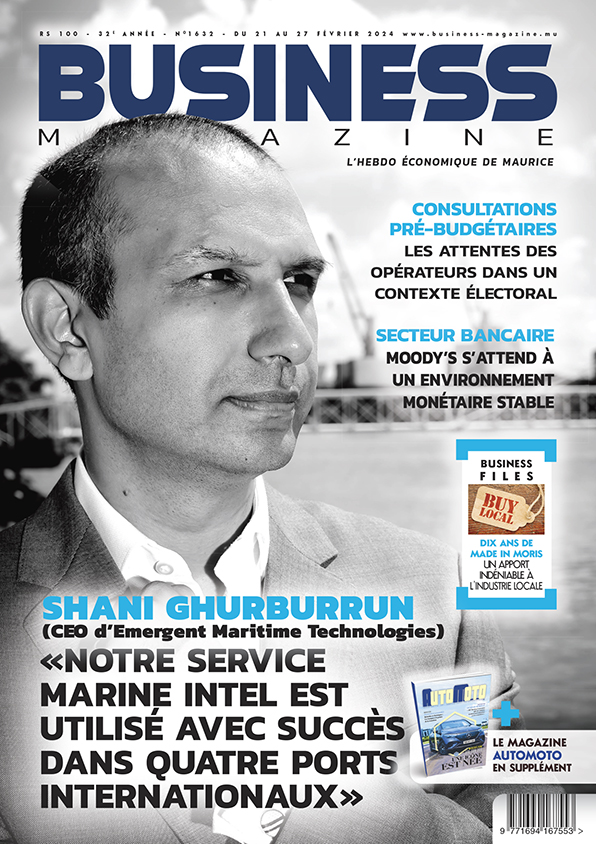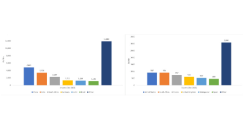The Directory Of Financial Institutions 2022 : Positioning Mauritius for the future
Share

While covid-19’s formidable effects on economies and policies remain top of every mind, a new set of uncertainties has paved the way through. Global political turmoil and Russia’s invasion of Ukraine have exacerbated inflationary pressures through a surge in commodity and energy prices, hindering economic growth.
AMID the ongoing challenges, the Mauritius financial centre continues to thrive, retaining its ‘par excellence’ status. The government has focused on continually developing Mauritius as a regional and international financial centre, offering investors a pro-business environment, excellent infrastructure coupled with high-end connectivity. The well skilled labour force is obviously another crucial asset. Apart from a slowdown in the year 2020 (4.0%), the Mauritius financial centre regained its mojo in 2021, posting growth rate of 4.6%. The growth trend is expected to continue in 2022.
CONTINUOUS INNOVATIONS
The continued vibrance and elasticity of the Mauritius financial centre is largely attributable to its ability to innovate. In April 2022, the Financial Services Commission (FSC) launched the new Variable Capital Companies (VCC) structure under the VCC Act. The objective of this versatile structure is to further encourage the domiciliation of Investment Funds in Mauritius. This new corporate structure provides flexibility to fund managers to originate a wide range of Investment Funds, under one umbrella, whilst at the same time also bringing about cost savings.
To keep abreast with the rise of bitcoin and other digital assets, the FSC introduced the Virtual Asset and Initial Token Offering Services Act (VAITOS) in February 2022. The latter provides a comprehensive framework for the regulation of the digital assets. To complement its muscle as a digital hub in the African region, the Mauritius Africa FinTech Hub (MAFH) has been set up to bring substance to the environment needed to promote Mauritius. This hub brings together innovators, entrepreneurs, government agencies and corporates, as well as working with regional African FinTech Hubs to allow financial service providers and FinTech companies to work together to create products in a safe, innovative, and nurturing environment. A pragmatic regulatory approach, coupled with bold and innovative endeavors, means that Mauritius continues to find ways to grow and innovate in its offerings to investors.
MAURITIUS, A GLOBAL PLAYER
In 2021, Mauritius maintained its first position on the African continent in the Global Innovation Index (GII). The GII assesses the innovation landscape of some 130 countries and ranks them based on their annual performance. Co-published by the World Intellectual Property Organisation (WIPO), Cornell University of New York and Institut Européen d’Administration des Affaires and released on 20 September 2021, the index concluded that the country has made great strides when it comes to its innovative capacity. Mauritius was ranked at a commendable 52nd position globally, ranking the highest in the sub-Saharan region.
As part of the response to re-jig the economy post-pandemic, the government of Mauritius, in the June 2022 budget, announced the upskilling of 1,000 individuals in data communications, 5G, Cloud Computing, artificial intelligence and Cyber security as from July 2022. The aim of this development programme is to enhance the employability of these individuals in an ever-dynamic digital environment.
A key theme presented in the last budget, is the introduction of a domestic minimum top-up tax, applicable to companies’ resident in Mauritius forming part of multinational enterprise groups having a global annual revenue of €750 million or more, to ensure that they are taxed at the global minimum rate of 15%. This endeavour is in line with the commitment taken by Mauritius (together with 129 countries) about the OECD’s two pillars plan to reform international taxation rules and ensures that multinational companies pay a fair share of tax wherever they operate. This move demonstrates Mauritius adherence to OECD principles. In addition, this measure reinforces confidence in Mauritius as a transparent and reliable jurisdiction of international standard.
The budget also focused on investor protection so much so that businesses and HNWI are relieved from any new wealth taxing measures. This indicates that, in the current context, the government has realised that the burden of social protection cannot be passed directly to the private sector, which is still healing its wounds from the pandemic. These budgetary measures presume that the worst may not yet be behind us, with inflation being already a major concern to the cost-of-living crisis. Ongoing geopolitical uncertainties, further disruptions to production and trade indicate an outlook without respite. To this end, the protective and prudent stance of the government is just and safe.
THE GATEWAY TO AFRICA
In its drive to promote Mauritius as a reputed and effective trade and investment platform for the continent, the Economic Development Board (EDB) is working towards reinforcing economic collaboration with African States. Mauritius is the most prominent and the most reliable financial centre in the African region. This has been achieved as the country has improved a lot in terms of governance and regulations. Mauritius, as an African country, has the right attributes because it has agreements with many African countries.
The Mauritius Africa strategy is structured around two axes. The first relate to bilateral arrangements to expand the economic horizon of Mauritius. The African Continental Free Trade Area (AFCFTA), which came in force in January 2021, is the continent’s most ambitious integration initiative. The main objectives of this trade pact are the free movement of goods and services in a single continental market, expansion of regional trade within Africa, enhancing Africa’s competitiveness and support its economic transformation. The second axis is institutional and aims at increasing the presence of Mauritius companies in the continent. The presence of Alteo, Omnicane and Eclosia, to name just a few, in the African continent is testimony of the investment opportunities available. Alteo owns and operates three power plants in Mauritius and the sub-Saharan African region, exporting an average 340 GWh annually. Moreover, a growing share of the electricity it generates is from renewables such as biomass and solar energy. The objective is to streamline the network of Mauritius in the continent.
A global pandemic, coupled with geopolitical and economic risks, would have tested any government. Regretfully, questions about the character and fitness of persons holding the high office are being raised. The ex-CEO of Mauritius Telecom (MT) is accusing the prime minister of indulging in the high security affairs of the country.
Going forward, Mauritius’s financial centre is expected to continue to grow and innovate, thanks to the right and transparent ecosystem. Thus far, Mauritius has extolled the virtues of being an exceptional jurisdiction ‘par excellence’. Digitisation, competition, diversification, and innovation are expected to be the key areas of focus in ensuring Mauritius’ continued growth and stability.
by Ludovic Verbist Managing Director, AAMIL Group

















